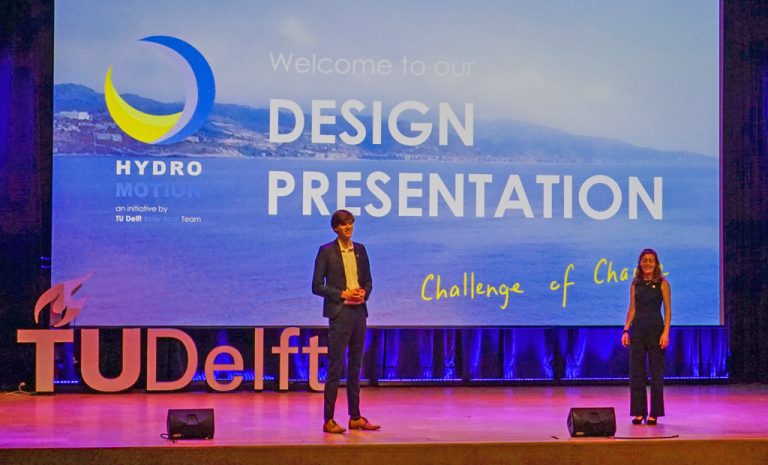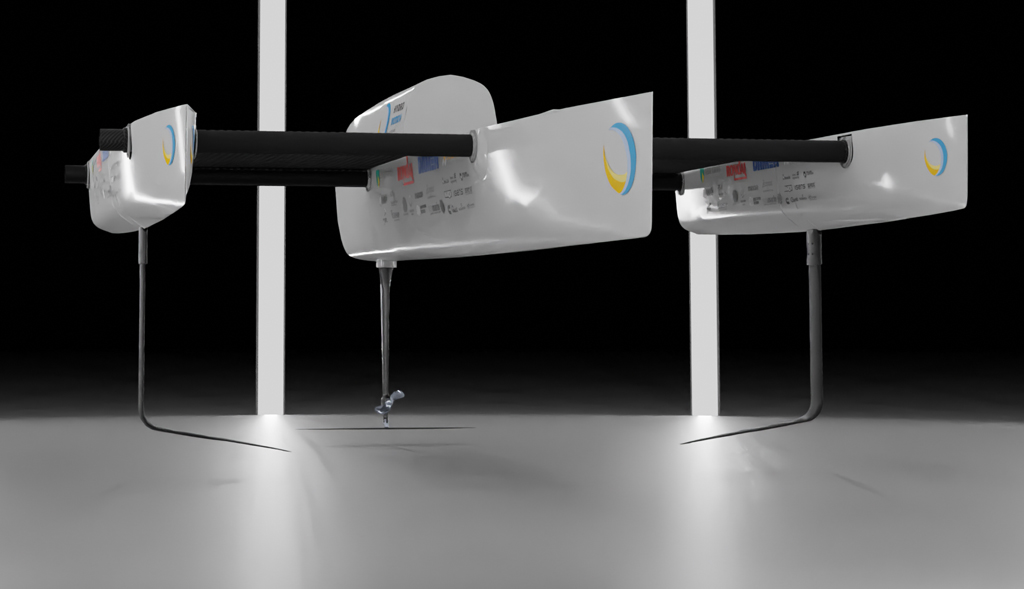The TU Delft Solar Boat Team is due for a name change. The electrically powered trimaran gets its energy from hydrogen instead of solar cells.
The Hydro Motion gets its energy from a 30 kW hydrogen fuel cell. (Illustration: Delft Solar Boat Team)
The new name has therefore become ‘Hydro Motion’, with a 30 kilowatt fuel cell as the powerhouse for the electric drive. The trimaran’s three floats are fitted with hydrofoils that lift the boat out of the water when it reaches sufficient speed. With a weight of 1,000 kg, the students calculated the take-off speed to be 22 km/hour.

Bouwe Theijse and Simone Vis doing the design presentation. (Photo: Delft Solar Boat Team)
Team Manager Simone Vis and Project Manager Bouwe Theijse ran the Solar Boat Team’s design presentation from the TU Delft auditorium via video streaming, of course. Vis explained the switch to hydrogen. “Changes give us the opportunity to develop ourselves and to push boundaries. That is why we, the TU Delft Solar Boat Team, take up the challenge of change to move towards a green future.”
Now that the design is finished, the construction will follow and then the tests. This summer, the team wants to compete in Open Sea Class races in Monaco. The race will take place on the open sea, so the boat has to be able to withstand large waves. But it must also be light enough to rise out of the water on its hydrofoils. Finding the balance between these and many other conflicting requirements is the challenge for the coming months.
Do you have a question or comment about this article?
j.w.wassink@tudelft.nl


Comments are closed.